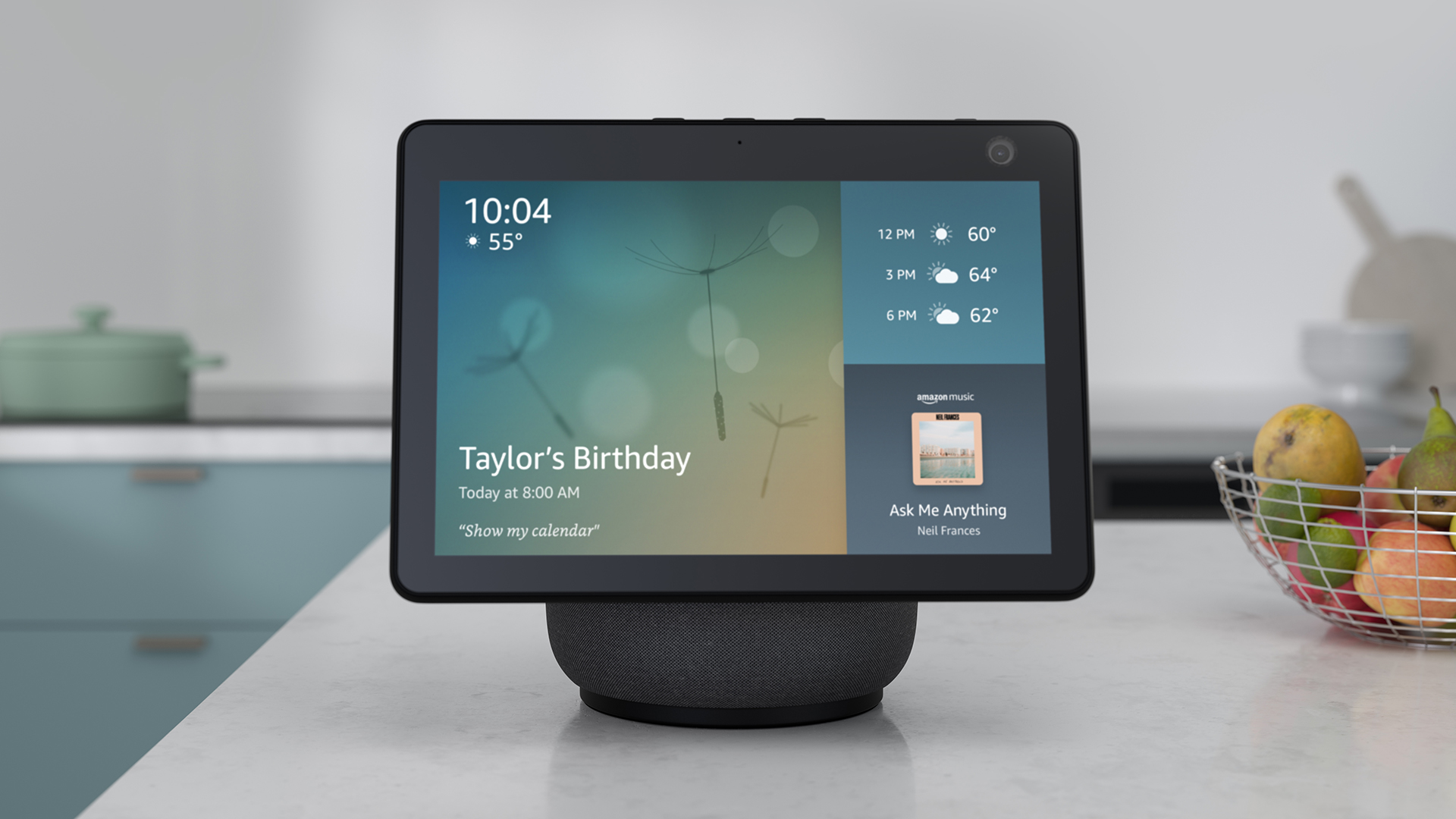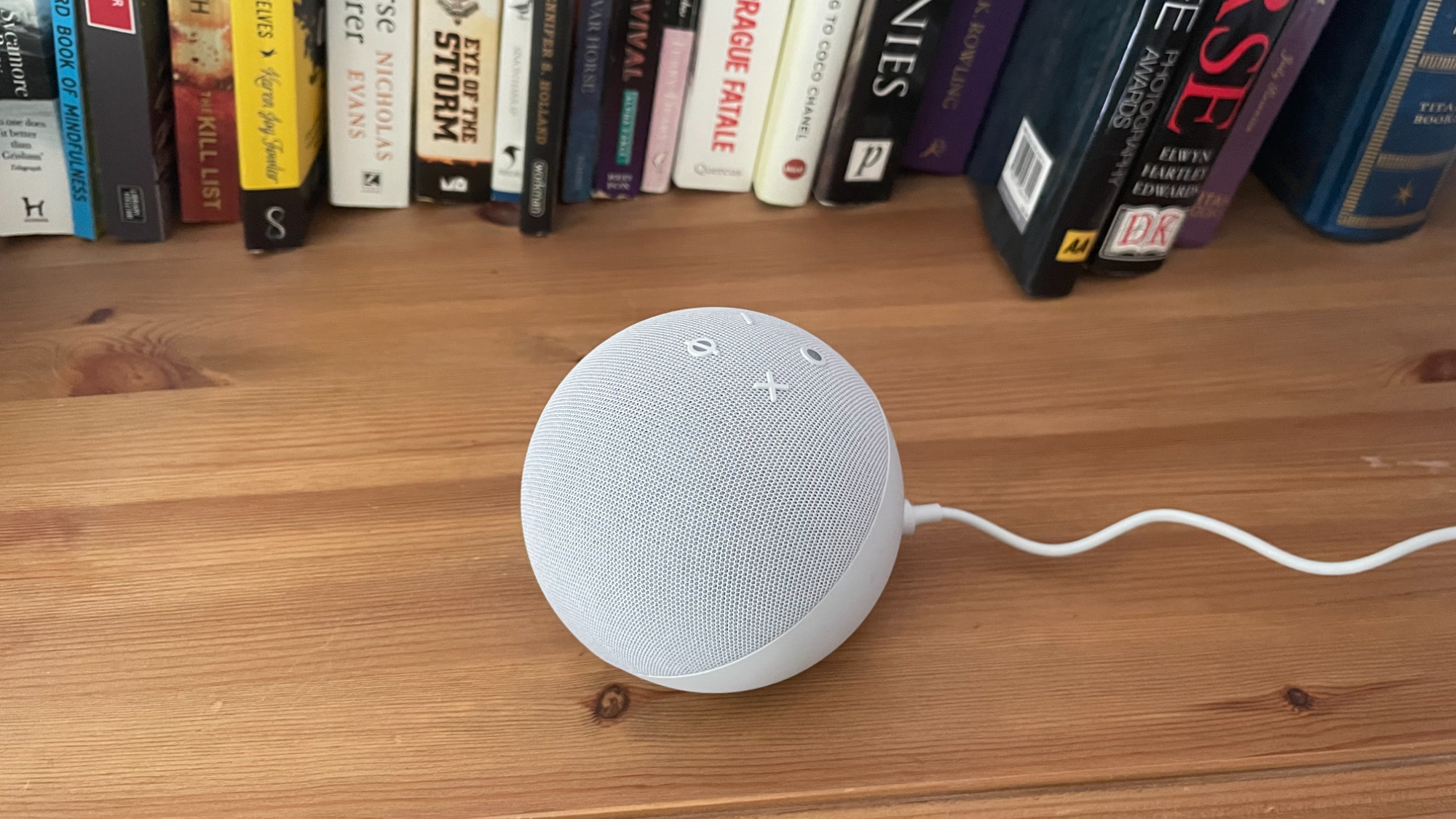
My Echo Show thinks it's Christmas. In June. I don't know why, but the smart speaker keeps suggesting Christmas recipes like 'Classic Christmas pudding' and 'Christmas brownies'. It's also prompting me to ask it to play Jingle Bells. It's 22 degrees Celsius outside.
This isn't the first time a smart speaker has acted in ways that couldn't be described as smart. From promoting conspiracy theories to advising users to break the law, here are eight times smart speakers were decidedly dumb.
1. Hard of hearing

As long as no one in your household is called Alexa, you'd think you would be pretty unlikely to accidentally wake your smart speaker. But you'd be wrong.
Back in 2020, researchers identified more than 1000 terms and phrases that popular smart speakers mistakenly interpreted as their wake word. One. Thousand. These include "unacceptable", "a letter" or – topically – "election", all of which were misheard as "Alexa". But it wasn't just Amazon's devices getting it wrong.
Academics at Ruhr-Universitat Bochum (RUB) and the Max Planck Institute in Germany found that Siri misheard "Hey Jerry" as "Hey Siri", which could be cause for concern for Seinfeld fans. Apple's smart assistant also interpreted the phrase "a city" as its wake word, while "OK cool" and "OK, who is reading" were both misinterpreted by Google Assistant as "OK, Google," as was "cocaine noodles," which is probably less of an issue.
More of an issue is the amount of accidental eavesdropping caused by all these false wakes. A 2020 study by Northeastern University in Boston found smart speakers can accidentally record conversations up to 19 times a day due to false wakes. That's a lot of what you say being hoovered up by these devices.
2. Bah, humbug

In 2018, Alexa ruined Christmas. On 25th December, Amazon's servers collapsed under increased demand from thousands of new, freshly unwrapped Alexa devices all connecting at the same time. That meant people couldn't use their shiny new smart speakers to play Last Christmas, turn on their smart lights or look up recipes for Christmas dinner. Anyone trying to do so was met with the stock response, "Sorry, I'm having trouble understanding that right now. Please try a little later."
Social media users joked that Alexa had taken Christmas Day off, while others speculated that it was, in fact, Ebenezer Scrooge.
3. Paws for thought
In 2018, a British man complained to the Advertising Standards Authority after an Amazon TV advert used the phrase "Alexa, reorder Purina cat food" made his smart speaker do just that. Which is why you shouldn't keep your smart speaker next to your TV.
4. Hair apparent
Still on cats, freelance tech journalist Alan Martin asked both Google Assistant and Alexa "How many hairs are on a cat?" He got a lot more sense out of Google's helper than Amazon's.
Google Assistant replied: "On the website catsinfo.com, they say there are approximately 60,000 hairs per square inch on the back of a cat and approximately 100,000 per square inch on its underside."
While Alexa replied: "A cat has 60,000 hairs."
As Martin writes: "It's obvious what's happened here: either Alexa has only ever seen really mangy cats, or its gone to the same website as Google Assistant, but stopped reading after the first sentence. As a result, it's roughly 39,940,000 out – give or take a few hairs."
5. Killer app

In 2017, Alexa told a user to "Kill your foster parents" after it quoted from Reddit, which is something you should never do. Just last month, Google's new AI search function was telling users to glue cheese to a pizza to make sure it sticks and that geologists recommend people eat one rock a day. Its sources for these spurious claims were satirical site The Onion and – you guessed it – Reddit.
6. Parroting it back
It's not just six-year-old girls who potentially rack up huge bills for their families by buying things through Alexa – a parrot has been at it as well.
A few years ago, Rocco the African grey parrot was found to be interacting with its owner's Echo speaker between 30 and 40 times a day. Marion Wischnewski, who took Rocco in from a National Animal Welfare Trust sanctuary where she works, found he had ordered strawberries, ice cream and a kettle while she was out, though thanks to a parental lock, none of the items were actually purchased.
Rocco also had Alexa playing songs, telling jokes (by saying "Alexa, knock knock") and adding treats to Wischnewski's basket. It's not the first time Rocco had acted up. According to The Times, he had to leave the animal sanctuary for swearing too much.
7. Conspiracy to commit falsehood
Until 2018, Alexa would answer the query "What are chemtrails?" by saying, "Chemtrails: trails left by aircraft are actually chemical or biological agents deliberately sprayed at high altitudes for a purpose undisclosed to the general public in clandestine programmes directed by government officials." With no mention at all that what it just said is a baseless conspiracy theory.
8. Not funny
In February and March 2018, users complained Alexa speakers were randomly playing a "bone-chilling" cackle.
"I was trying to turn off some lights and they kept turning back on," one user wrote. "After the third request, Alexa stopped responding and instead did an evil laugh. The laugh wasn't in the Alexa voice. I still get chills." Maybe it was thinking about all those conversations it had "accidentally" recorded.
MORE:
Check out the best Alexa speakers
Or the best smart speakers
And the best AirPlay speakers







